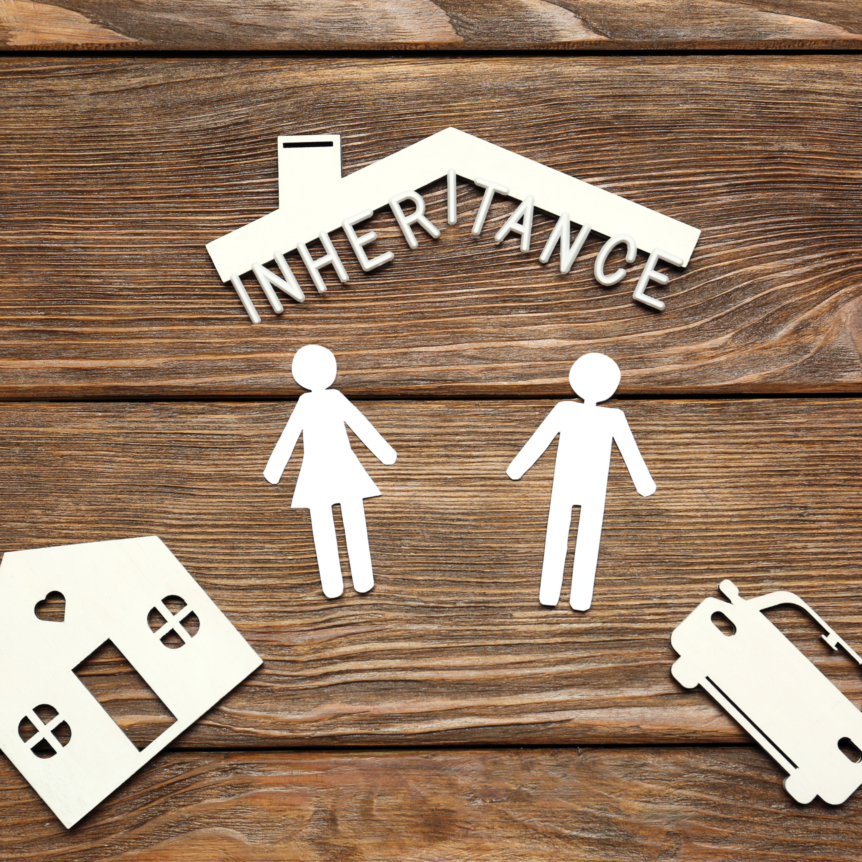Smart Strategies for Financial Security
When you think about receiving an inheritance, you likely imagine financial freedom. However, research shows that many people spend their inheritance quickly, often with little to show for it. One study found that a significant number of Americans see no long-term benefit after receiving their inheritance. Baby boomers, in particular, have been known to spend an entire inheritance of $100,000 or more within a short period of time.
TABLE OF CONTENTS
- 1. Avoid Making Quick Decisions
- 2. Decide How to Manage Your Funds as a Couple
- 3. Be Strategic About Gifting
- 4. Prioritize Debt Management
- 5. Contribute More to Your Retirement Accounts
- 6. Build a Team of Experts
If you want your inheritance to last and provide lasting security, careful planning is essential. Here are some strategies to help ensure your newfound wealth stands the test of time.
1. Avoid Making Quick Decisions
It can be tempting to jump into new purchases or investments right after receiving an inheritance. However, taking a step back to evaluate your options will serve you better in the long run.
To safeguard your inheritance initially:
– Park your funds in a savings account, money market account, or certificate of deposit (CD). Keep in mind that these accounts are only FDIC-insured up to $250,000 per depositor, so consider the amount carefully.
– If you don’t already have an emergency fund, now is the time to set one up. A good rule of thumb is to cover six months to a year of expenses. More on this below.
Looking for more tips on financial discipline? Check out this blog to avoid lifestyle creep and grow your wealth over time.
2. Decide How to Manage Your Funds as a Couple
Are you married or in a committed relationship? One key decision is whether to keep the inheritance in your name alone or open a joint account with your spouse.
Keeping the funds separate may help protect them from being classified as a marital asset in the event of a divorce. However, even if the money is in a sole account, using it for joint expenses could expose it to legal scrutiny as a shared marital asset.
Consult with a legal advisor to understand how inheritance laws apply in your state before making any moves.
3. Be Strategic About Gifting
If you plan on sharing part of your inheritance with children or other loved ones, proceed with caution. Gifting laws can trigger tax consequences if not properly structured. Always consult with a financial expert to understand the potential tax impacts of giving away a portion of your wealth.
Want to learn more about taxes and inheritance? Read here.
4. Prioritize Debt Management
Consider using a portion of your inheritance to pay off high-interest debts or significant liabilities. Reducing your debt burden not only frees up future cash flow but also decreases financial stress.
One of the quickest ways to obtain a double-digit return on your investment is to pay off the debt. Interest rates on consumer debt are typically between 18% – 29%. No debt – no interest & no hole at the bottom of your financial bucket.
However, paying off debts is just one part of creating a long-term strategy. You’ll also want to ensure you’re securing your future retirement.
5. Contribute More to Your Retirement Accounts
If you’re still working, now is a great time to bolster your retirement savings. Many financial planners recommend having:
– 1 year’s worth of salary saved by age 30
– 3 times your salary saved by age 40
– 6 times your salary saved by age 50
– 8 times your salary saved by age 60
If you haven’t maxed out your 401(k) contributions, consider increasing your withholdings, especially if your employer offers a match. For those without a 401(k), funding an IRA is a smart move.
If you’ve inherited a traditional IRA, remember that withdrawals will be counted as taxable income. Be sure to work with a financial professional to structure your withdrawals in a tax-efficient manner.
Also, it’s a good idea to ask your advisory team about which accounts should be drawn on first. Just recently, I was speaking with a couple that still operated a consulting business, had retirement accounts, and regular cash/investment accounts. For their annual spending needs, they were only using the business income and their non-retirement savings. They are old enough that they must take Required Minimum Distributions (RMDs). Under their entire structure, not regularly accessing their retirement accounts was working against them. Could this happen to you?
6. Build a Team of Experts
To ensure your inheritance works for you, it’s important to build a team of trusted advisors:
– Financial Advisors: Help with retirement, investments, and long-term goals.
– Insurance Agents: Ensure you have appropriate coverage for life, long-term care, and liability.
– Tax Professionals: Provide strategies to minimize capital gains and other taxes.
Finally, don’t forget the importance of having a solid estate plan. Whether it’s creating or updating your will, establishing a trust, or managing gifting strategies, estate planning is crucial to ensure your wealth benefits your family for generations.
We at Yolofsky Law can assist with estate planning, asset protection, and ensuring your inheritance creates a lasting legacy.
What’s Next?
With the right strategies in place, an inheritance can provide financial stability for years to come. Whether you’re looking to grow, protect, or share your wealth, don’t navigate the complexities of managing an inheritance on your own.
We’re here to guide you every step of the way.
Ready to start planning for your financial future? Schedule a 15-minute call today or email us at hello@yolofskylaw.com to schedule a consultation and get personalized advice on how to make your inheritance last.

